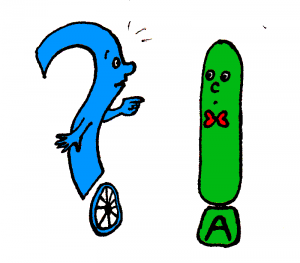One of the stranger – and yet quite common – idioms in the German language is this one:
von Pontius zu Pilatus laufen (literally: to run from Pontius to Pilate)
Meaning: to run from one place to another on an errand or in search of something, but without success
This quaint expression finds particular popularity when one is chased from one agency to another to initiate a bureaucratic process of some sort. Its origin is indeed connected to the biblical Pontius Pilate, the Roman prefect of Judaea. According to the Gospel of Luke, Jesus was brought before Pilate to be judged, but the prefect was unconvinced of his guilt and sent the Galilean prisoner to Herod Antipas, ruler of Galilee, whom he thought responsible. Herod Antipas also didn’t think that Jesus was guilty and sent him back to Pilate, who then bowed to public pressure and condemned him. In its modern usage, the term conveys that, despite your efforts, you are still at the same point where you started. It can be translated with the English idiom: going from pillar to post In this case, the origin is obscure. There are a number of theories, of which I find none convincing enough to include here.
 Linguistically, however, the expression works the same way as the German one: Creating an illusory distance between first name Pontius and last name Pilate does not change the fact that we are still talking about one person only. Anything in-between is of no consequence. The English idiom achieves the same effect by using synonyms: “pillar” and “post” stand for the same item, i.e., a type of column. Any distance covered between the two does not get you any further. Thus the artificially created space in both idioms references the ineffectiveness of moving from one place to another.
Linguistically, however, the expression works the same way as the German one: Creating an illusory distance between first name Pontius and last name Pilate does not change the fact that we are still talking about one person only. Anything in-between is of no consequence. The English idiom achieves the same effect by using synonyms: “pillar” and “post” stand for the same item, i.e., a type of column. Any distance covered between the two does not get you any further. Thus the artificially created space in both idioms references the ineffectiveness of moving from one place to another. “Von Pontius zu Pilatus laufen” cannot be translated as “to get the runaround”: Although this expression also conveys that you are given wrong information or false excuses, that your question is evaded, or that your request is unnecessarily delayed, it refers to a mental action during which you remain stationary. In contrast, the German idiom refers to physically moving around.
“Von Pontius zu Pilatus laufen” cannot be translated as “to get the runaround”: Although this expression also conveys that you are given wrong information or false excuses, that your question is evaded, or that your request is unnecessarily delayed, it refers to a mental action during which you remain stationary. In contrast, the German idiom refers to physically moving around.
Eine deutsche Erörterung des Themas gibt es hier.
